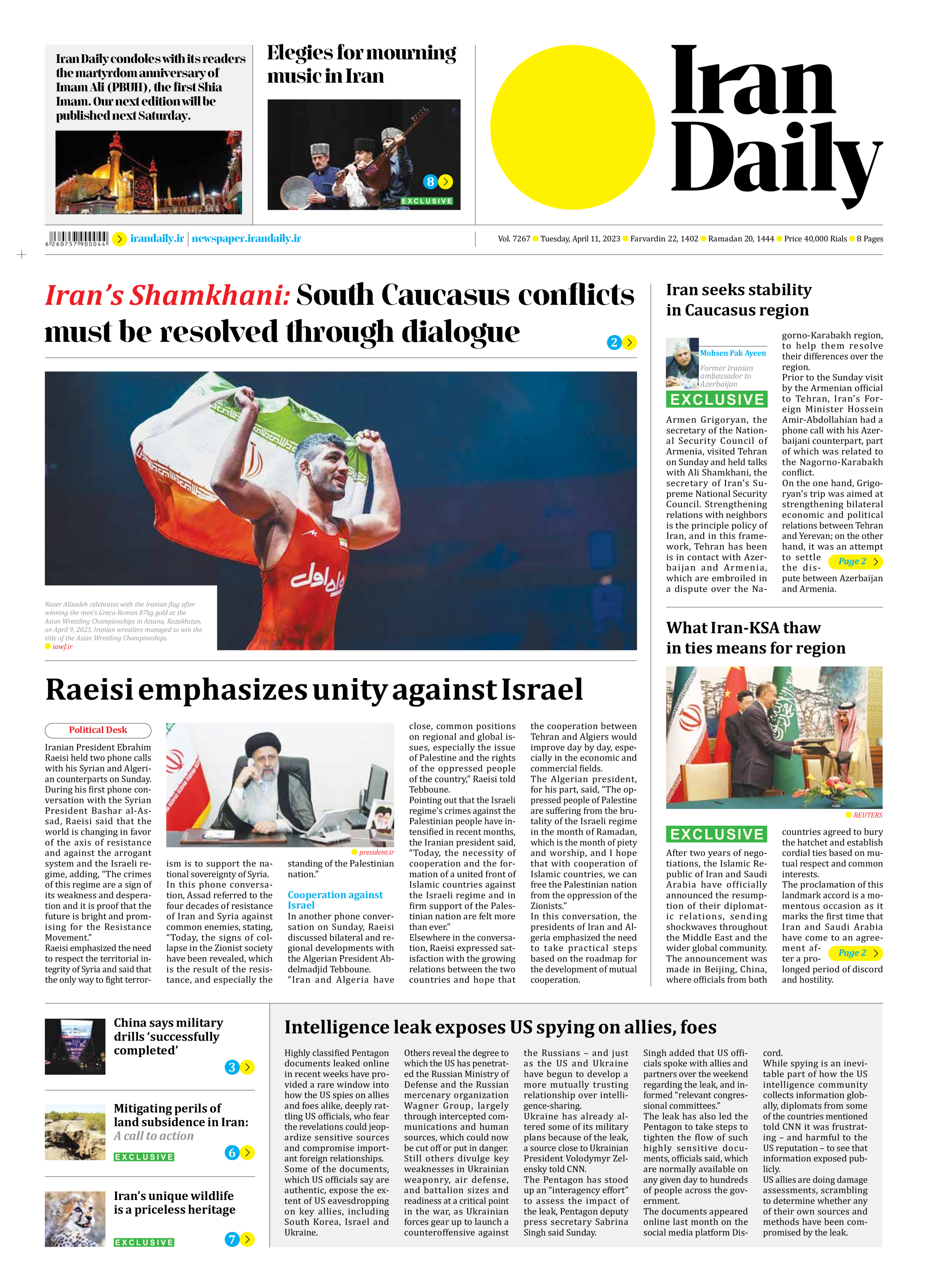
What Iran-KSA thaw in ties means for region
After two years of negotiations, the Islamic Republic of Iran and Saudi Arabia have officially announced the resumption of their diplomatic relations, sending shockwaves throughout the Middle East and the wider global community. The announcement was made in Beijing, China, where officials from both countries agreed to bury the hatchet and establish cordial ties based on mutual respect and common interests.
The proclamation of this landmark accord is a momentous occasion as it marks the first time that Iran and Saudi Arabia have come to an agreement after a prolonged period of discord and hostility.
Saeed Azimi
Staff writer
The accord between these two major Muslim nations will undoubtedly have far-reaching implications for the region, with the potential to shift the balance of power and diminish Washington’s influence in the Middle East.
The agreement between Iran and Saudi Arabia will have significant repercussions on the wider region, with countries and peoples throughout the Middle East benefiting from this momentous event.
The accord has been warmly welcomed by actors throughout the region including Türkiye, Egypt, Bahrain, and other Arab countries as well as factions of the resistance front such as Lebanon’s Hezbollah, Yemen’s Ansarullah, and Palestinian groups.
New chapter in ties
The renewal of relations between Iran and Saudi Arabia does not signify the resolution of all fundamental differences or the termination of differences in their approaches or postures on particular subjects or cases. It envisions mutual benefits. Under the agreement, each country endeavors to attain and safeguard its national interests to the fullest extent possible.
The accord marks a significant achievement in regional diplomacy and paves the way for further cooperation in various domains of shared interest. In addition to the economic benefits, the agreement will have a positive impact on regional security and stability, which is vital for the entire region. The engagement of regional actors in resolving regional issues and disputes, without any foreign interference, is a key principle of Iran’s foreign policy.
Economic benefits
The accord with Saudi Arabia is a positive and constructive measure that will greatly benefit Iran’s economic situation and contribute to its overall improvement. While the agreement may have been delayed and incurred significant costs over the years, it promises to be highly efficacious. The fact that Iran has reached an agreement with its Saudi neighbor is a critical first step in helping Iran foster cordial ties with other Arab nations, facilitate greater influence in the economic sphere, and ultimately ease the suffocating impact of sanctions.
Investors are less likely to invest in a tumultuous international environment, and in order to make a significant investment, the investor must evaluate the foreseeable future (spanning at least the next 10 to 15 years) in a favorable state. When the atmosphere is placid and conducive to stable relations, investors will undoubtedly be more inclined to invest. The presence of investors in a country can, in turn, play a pivotal role in boosting employment, reducing poverty, and bolstering the overall health of the economy.
Iran and Saudi Arabia can leverage their unique capabilities to create a complementary dynamic that prioritizes the interests of their respective governments and the broader community of nations in the region. By reducing tensions and improving relations, they can foster a more conducive environment for investment and attract investors. Such efforts will undoubtedly bear fruit and help build a brighter future for all.
Role of dialogue
The complexities of the issues facing the Middle East are readily apparent, given the extended period of foreign intervention. Therefore, by resorting to political dialogue and diplomatic methods, Iran and other regional nations can effectively preclude the possibility of creating further tension and deny ill-wishers any opportunity to foment unrest and instability in the region. It is also worth noting that China’s engagement in regional issues through projects such as the Belt and Road Initiative can contribute to regional development and security.
The accord sets a positive precedent for resolving conflicts through dialogue and diplomacy and serves as a model for other regional conflicts that require a similar approach. Ultimately, the accord between Iran and Saudi Arabia demonstrates the importance of dialogue and diplomacy in resolving conflicts and fostering cooperation not only between these two countries but also for the wider region and the world.







